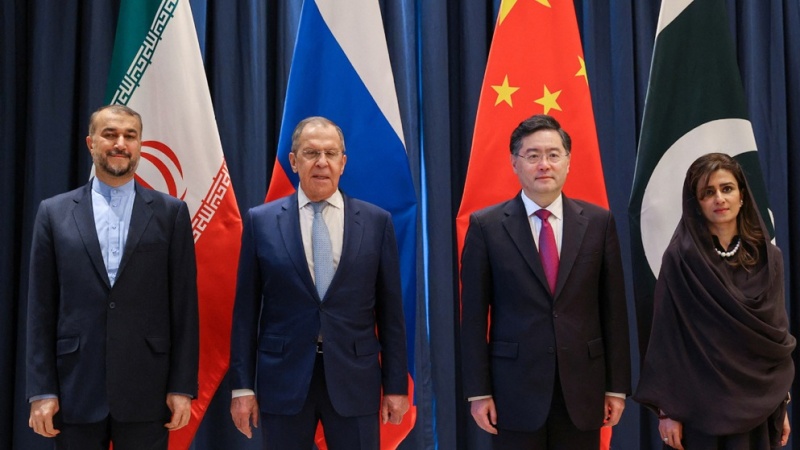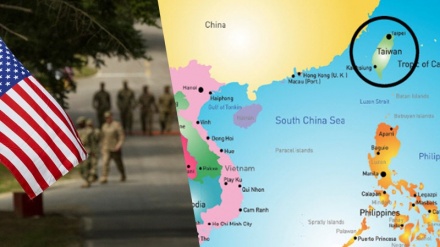China calls for support for Afghanistan reconstruction, development
China’s foreign minister has called for concerted efforts to support Afghanistan’s reconstruction and development during a summit meeting in Uzbekistan with counterparts from nations neighboring the war-ravaged country.
"All parties should demonstrate the spirit of good-neighborliness, friendship and mutual assistance, push forward the implementation of the outcomes of previous foreign ministers' meetings, and speak with one voice on supporting Afghanistan's reconstruction and development and promoting regional security and stability," Qin Gang said on Thursday at the fourth foreign ministers' meeting of Afghanistan's neighboring countries in the historic city of Samarkand.
Chaired by the acting minister of foreign affairs of Uzbekistan, Bakhtiyor Saidov, the meeting was attended by the foreign ministers of Afghanistan’s neighboring countries -- Iran’s Hossein Amir-Abdollahian, Russia’s Sergei Lavrov, Pakistan's Hina Rabbani Khar, Turkmenistan’s Vepa Hajiyev, and Tajikistan’s Sirojiddin Muhriddin.
The Chinese top diplomat also met with Afghanistan’s Acting Foreign Minister Mawlawi Amir Khan Muttaqi during the conference on Thursday, assuring him of a new level of cooperation.
Qin further underlined that China always respects Afghanistan's independence, sovereignty and territorial integrity, and the independent choice made by the Afghan people.
He added that Beijing firmly supports the Afghan interim government to exercise inclusive and moderate governance, promote good-neighborly ties, and build Afghanistan into an oasis of peace and a place of development and prosperity on the Beijing-sponsored Silk Road Economic Belt.
Further pointing to Afghanistan’s post-US occupation situation, Qin also urged the international community, especially the countries neighboring the impoverished nation, to maintain their support for Afghanistan’s reconstruction.
He went on to demand the US, which initiated the Afghan debacle, to immediately lift the brutal unilateral sanctions it has imposed on Afghanistan, to release the country’s illegally frozen funds, and to fulfill its due responsibilities towards Kabul.
For his part, Muttaqi thanked Beijing for its long-term political support of Afghanistan, saying that Afghan Taliban appreciates and welcomes China's release of the position paper on Afghanistan, respects China's sovereignty and territorial integrity and understands China's security concerns.
He was referring to a statement issued by China’s foreign ministry prior to the Samarkand summit in which Beijing expressed hope that Afghanistan’s Taliban would continue working actively to meet its people’s interests and the international community’s expectations for an open and inclusive political structure.
“We hope the Afghan interim government will protect the basic rights and interests of all Afghan people, including women, children and all ethnic groups,” said the statement.
Muttaqi further emphasized that the Taliban government will never allow any forces to use Afghan territory to harm China's national interests, and will spare no efforts to protect the safety of Chinese institutions and citizens in Afghanistan.
He also congratulated Beijing on its successful facilitation of the historic reconciliation between Saudi Arabia and Iran.
MG



